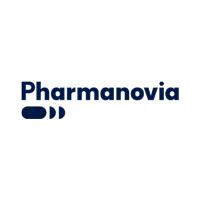12 Questions with Dr James Burt

James Burt, CEO of Pharmanovia, is a seasoned leader focused on driving innovation in the value-added medicines (VAMs) space. He holds a PhD in Chemical Engineering from the University of Birmingham, bringing a strong scientific background and a deep understanding of drug development to his role. Prior to joining Pharmanovia in 2021, Burt led branded and generic pharmaceutical activities across 65 markets as Executive Vice President EMENA at Accord Healthcare. Burt’s commitment extends beyond Pharmanovia. He currently serves as Chair of the Medicines for Europe, Value Added Medicines Sector Group, actively shaping the future of VAMs.
What is your background prior to this role and how did it prepare you for the work you do now? My passion for the industry began while completing my PhD in biochemical engineering at the University of Birmingham. My career started in earnest as a medical representative for a small Australian company called Faulding Pharmaceuticals, who were among one of the first to launch a generic chemotherapy.
After five years, I got approached to join an entrepreneurial Icelandic company called Actavis and set up their hospital generic division worldwide, staying for around six years.
Before I joined Pharmanovia in 2018, I was executive vice-president, Europe, Middle East and North Africa at Accord Healthcare, overseeing both branded and generic pharmaceutical activities across approximately 65 countries. This enabled me to see first-hand how incremental innovation can deliver a positive impact to people. So, when the opportunity arose to lead Pharmanovia and develop a leading life cycle management company, with a clear purpose of making medicines fit for tomorrow to improve the lives of patients globally, it was too good an opportunity to miss.
What motivates you about working in pharma? Few industries can claim that the work they do truly improves peoples’ lives. Pharma can - and does - just this. Furthermore, the space Pharmanovia occupies within the pharmaceutical industry is a huge motivator for me. Unlike many established pharma companies, we actively embrace an entrepreneurial approach. It's this ability to think and move quickly that allows us to capitalise on the significant opportunities presented by the incremental innovation our strategy delivers.
Being able to take established medicines and breathe new life into them is highly motivating. It's a unique field within pharma. One that allows us to make a genuine impact on society, while delivering potential cost savings to health systems. I don't see many companies able to easily replicate our strategy and that's exciting.
What do you see as the biggest challenges facing the industry right now? I entered 2024 with a renewed sense of optimism, which remains as we reach mid-year. Having said that, we’re still living in a time of uncertainty and there is no doubt that there are still some significant challenges ahead of us.
From a macro perspective, global inflation, while seemingly stabilising, is still putting pressure on pharma cost bases and, unlike many other industries, we can’t easily flex our prices as inflation hits. Therefore, continued focus on offsetting inflationary pressures with operating efficiencies remains a core focus for pharma businesses. There is also the ongoing and devastating geo-political challenges, which in turn have caused rising costs and economic turmoil on a global scale. In addition, it’s likely that we’ll also see continued disruptions to our global supply chains, resulting in treatment shortages to many people across the world.
While there is no easy fix-all solutions, remaining vigilant and adopting an agile mindset is crucial in navigating these uncertain times successfully. From an industry specific perspective, we’re seeing an ease in healthcare spend, which I expect to continue in the coming years. Coupled with this, we’ve seen multiple patent losses in late 2023 and into this year, which will I expect to contribute to pressure on investments in innovation, particularly among larger organisations. For the smaller companies, particularly those heavily reliant on funding to support early-stage development, funding pressures are likely to remain for some time and we expect partnering with commercial partners to increase.
What excites you most about current industry trends? I'm enthusiastic about the untapped opportunity for value-added medicines (VAMs) in healthcare, particularly in Europe. Exciting discussions are currently underway regarding proposals in the European pharmaceutical legislation for a new pathway for VAMs (article 84) which would help cut the red tape and make it easier to improve established medications. In my role as Chair of the Value-Added Medicines sector group at Medicines for Europe, I've been helping to advocate for these changes, which we believe would promote sustainable innovation and improve patient access to VAMs.
While the specifics are still being finalised, we're optimistic that a clearer framework for drug repurposing and reformulation will emerge. This would be a major win for patients and healthcare systems across Europe.
How has digital technology changed your work? Digital health is a promising area, but it’s not a panacea. Over the past five years there’s been a lot of hype, with big investment budgets, based on the idea of revolutionary cures. The pandemic helped people embrace digital tools, but some well-funded start-ups haven't delivered on their promises.
At Pharmanovia, we recognise the potential of digital health technology and it’s a focus for us; however, we believe it’s about renovation, not revolution. We focus on specific patient needs and identify existing technologies that can work with existing medicines or treatments to address these. There is a great opportunity through technology to provide better delivery mechanisms, as well as a more personalised patient experience. Data has already shown that more tailored treatment options, which better engage patients, ultimately leads to better adherence, which in turn should lead to better patient outcomes.
What are the most important professional skills in your work and how do you hone them? In the CEO role, you wear many hats. But for me, it always starts from one central question: ” What is the patient need?” From here it’s then about being able to rally your team around delivering the solution to this need. It’s vital to communicate and to translate your vision into a clear roadmap that everyone understands and, most importantly, believes in. That may sound obvious, but for me, it comes down to recognising people’s drivers and motivations. So, whether you’re talking to potential investors, partners or your internal team, you need to be able to understand their viewpoint and knowledge base to bring them on the journey with you. I’ve come across many geniuses working in our industry, who are just on another level when it comes to scientific prowess, but who struggle to get people equally excited about their innovation, because they haven’t been able to bridge the gap.
It’s also about recognising and trusting the talent and expertise you have around you. I’ve been in the industry for a while, but that doesn’t always make me the expert. ‘Just listening’ is a big part of my job and a skill that is often overlooked. I think that also comes back to what I said above – you need to have different perspectives around you, so that you have the full picture and can make an informed decision. The skill of course is knowing when to step back and listen and when to step up to make those tough decisions.
What do you think pharma will look like in 15 years? 50 years? I’ve seen a lot of changes within the industry throughout my career, so I’m excited by what’s on the horizon and how this can change the trajectory over the next 15 years and beyond.
I think one major revolution is in diagnostics – identifying a rare disease is often an odyssey – I read that on average diagnosis of such conditions takes on average six years. Various genomic studies are starting to show that in aggregate as many as 25% of us have a rare disease – so in aggregate they aren’t all that rare. Advances in genomic sequencing, as well as machine learning analysis of other tests, are really revolutionising detection. Aside from helping expedite treatment, where such exists, the enhanced knowledge really makes it more viable to generate new or repurposed medicines to help tackle such conditions.
How do you foster diversity in your workplace? It’s no secret that the pharmaceutical industry hasn’t always been the most diverse and inclusive. While we’re starting to see some improvements, we still have a long way to go. At Pharmanovia, we have made huge progress towards a fair and inclusive working environment for all our employees through our DEI work. We strive to empower all employees to have a voice and contribute to Pharmanovia’s success. We’ve also made important strides to increase the representation of women across the company to ensure a greater balance. We’re now at an almost 50/50 gender split across the organisation and have introduced new initiatives in the last year, including the launch of our Women’s Network, which provides support and an opportunity to connect and collaborate among peers and mentors.
One particular area of passion for me personally is in creating opportunities for people from diverse backgrounds. In 2022, we added social mobility to our diversity, equity, and inclusion (DEI) strategy and rolled out our first company-wide employee social mobility survey to help inform our overall approach. We believe that there is more than one route to a successful career, and through our graduate and apprenticeship schemes have brought in a diverse range of talent to our organisation. We also partner with SEO London, a UK-registered charity whose mission is to prepare talented students from underserved and underrepresented backgrounds for career success.
What’s the best film or TV show you’ve watched in the last year? I really enjoyed the 3-Body problem – great, smart, science-fiction. I’m still a little science geek at heart.
What sports do you follow and who do you root for? Rugby is the sport I follow the most. I always go to at least one England Six Nations game each tournament, and I’ve been to the last four World Cups. At a Premiership level I root for my local club, Northampton Saints, who’ve had a fantastic year.
What is your dream vacation? One where I can turn my phone off. I’m still looking forward to managing it one day.
How do you manage health, fitness, and wellness in your life? After multiple decades of training and teaching Ju-jitsu, I’ve more recently had to pivot to sports that lead to fewer black-eyes, so I’m in the gym three to four times per week and play golf when I occasionally get a chance.
Connect with Dr James Burt on LinkedIn.












